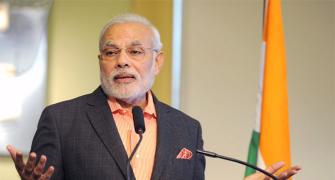
Diversify! Go for SIPs in equity MFs or buy debt funds!
Don't time the market!
Don't trade intra-day!
So simple!
The Indian stock markets are highly volatile at the moment, with wild intra day swings since August. This makes it hard for investors to time the market or to make the best return possible.
One of the ideal ways to ensure the returns from the portfolio is to diversify one's investments.
It is also advisable not to try to time the market, or to trade on an intra day basis -- as this increases the risk without necessarily increasing returns.
One of the best ways to counter a volatile market is to diversify your portfolio.
There should ideally always be some debt investments in the portfolio to ensure some amount of capital protection. Other asset classes such as international funds, or real estate, can also be looked at based on the investment goals and the investable corpus.
It is important to keep in mind that the debt markets and the equity markets typically move in opposite directions, with the debt markets benefiting when equities are down and vice versa.
Since most investors cannot keep abreast with the flow of financial information that comes through daily, it is advisable to have a monthly review of the portfolio and reallocate the corpus as required.
For example, if the stock markets are doing badly and are expected to continue this trend, it is advisable to shift some portion of the portfolio into debt instruments.
It is important to remember that debt instruments are much less volatile with the capital being more or less assured, but result give lower returns. However, given the current up-down nature of the markets, it makes sense to spread out your risks, and invest 50-70 per cent of in equity funds and 20-40 per cent in debt funds, and 10 per cent in gold (either in ETF or mutual funds) based on your risk profile.
We would suggest that one invests in the equity markets through a mutual fund since they do not need to be monitored on a daily basis, and ensure that one need not be a seasoned investor to take advantage of the returns provided in the equity markets.
The appropriate fund can be selected based on one's risk profile and financial goals. MFs are one of the best wealth creators for the long term.
Tax efficiency, ability to take risks and the need for long term planning are all arguments in favor of mutual funds.
One can invest in both equity and debt instruments at a low cost and without the need for daily monitoring. Systematic Investment Plans (SIPs) are the best investment route for mutual funds. SIPs will mean purchase of more units when the market falls and fewer units when the market rises.
Over a period of time this mode of investment becomes an effective tool of risk management.
Debt instruments are one of the best ways to counter financial market volatility as they ensure capital protection and offer moderate returns as well. One should not try to time the market and keep changing the investments in the portfolio but do a monthly or quarterly review and make any changes necessary then.
Summary:
- Do not partake in short term trading -- to avoid over exposure to equities, with no tangible returns in the near term
- It is advisable to have various asset classes in one's portfolio to provide some risk mitigation
- Debt markets and equity markets typically move in opposite directions
- Invest via mutual funds & SIPs to counter volatility
Photograph: Sam Valadi/Creative Commons
Anil Rego is the founder and CEO of Right Horizons, an investment advisory and wealth management firm that focuses on providing financial solutions that are specific to customer needs.










